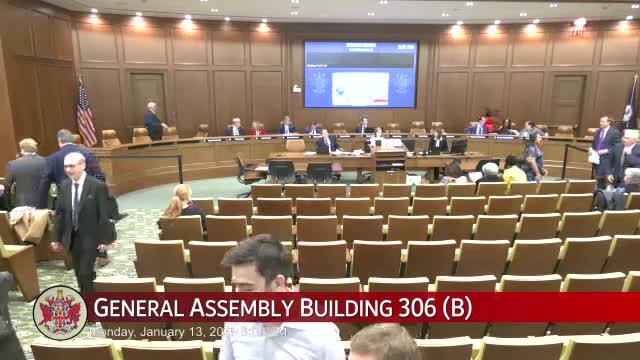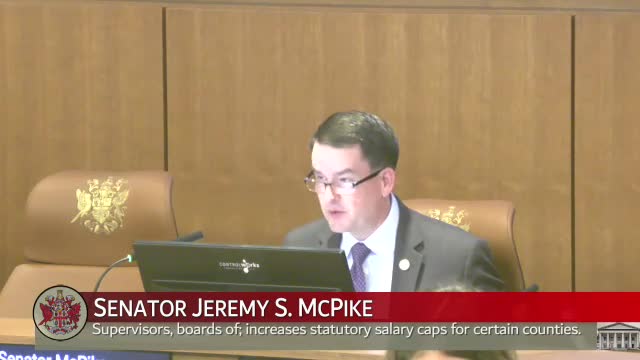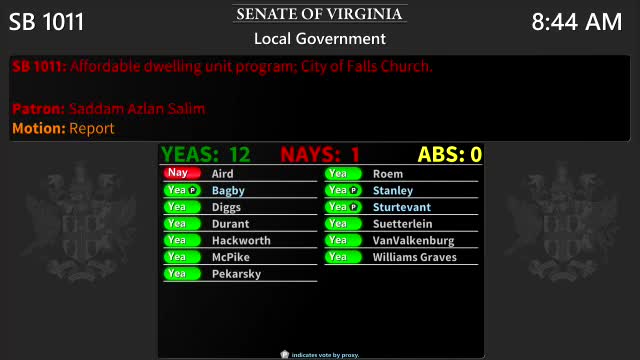Article not found
This article is no longer available. But don't worry—we've gathered other articles that discuss the same topic.

Senate Local Government committee advances multiple charter and local measures; quick roll calls on several bills

Committee advances bill letting counties set local elected official pay based on population bracket

